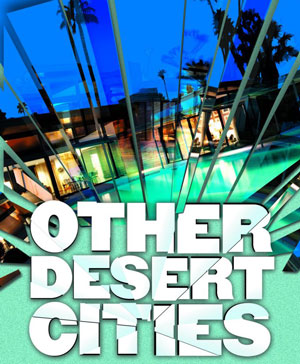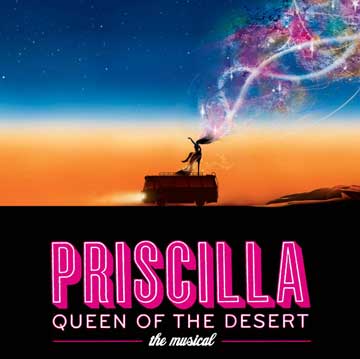 |
The International Association for Relational Psychoanalysis and Psychotherapy |
|
|
|
for the March 2012 IARPP Conference
reviews by J.J. Lee
 |
 |
|
ON BROADWAY Other Desert Cities is Jon Robin Baitz’s new play about dark secrets in a wealthy Palm Springs family. NY Times theater critic Ben Brantley calls it, “Deeply enjoyable with power to delight and bring you to tears... All family reunions should be so satisfying.” It is brilliantly directed and performed. But there are no moments of spontaneous pleasure for this family on their Christmas holiday, a holiday that celebrates the joy-filled birth of a holy son. Instead we witness the rebirth of a dead son, whose palpable presence pervades the atmosphere with the absolute absence of any joy-to-the-world. It is a deadliness that comes alive in volcanic bursts that first bubble and then explode, leaving the family covered in an ashen shame. What flows forth is the author’s dark humor and acid wit, which allows actor and audience alike to reach for terrific depths of feeling. The show revolves around a grown daughter, Brooke Wyeth. Brooke has returned home with the news she has secretly written a memoir that reveals a tragic event in her famous family’s history. It is a history that haunts, centering on the suicide of her older brother, and manifesting in fears of emotional annihilation and moral conflict. The presence of this troubled son’s absence inhabits the inner lives of all the characters amid an anguish of toxic injury. There are 5 characters in this show, but it is the familial trauma that plays the central role. The Wyeths are a family fractured and left lost to wander in the wilderness of dissociated misery. We truly root for these people to dig down deep and find the collective capacity to grieve and forgive. Other Desert Cities is a powerful and poignant portrayal of family secrets gone wild. The surprise ending, actually a secret within a secret, only serves to deepen the rupture. The repair, when it comes, is too little, too late. http://www.lct.org/showMain.htm?id=208 On the opposite end of the entertainment spectrum and based on the eponymous cult film, we have Priscilla Queen of the Desert, a production that the NY Times says is “performed with gleaming verve!” It’s an on-the-road tale of two drag queens and a transsexual who get a cabaret gig in the middle of the Australian Outback. The show is a joyful burst of outrageous fun; it explodes in a riot of campy, colorful costumes and over-the-top musical numbers that wrap a fantastical story in surprising familial warmth. These drag queens, “trimmed in feathers and fringe” (NY Times) are not only in your face, they quickly enter your heart as well. There is a secret here too, and it is also about a son. But this son is a little boy who is very much alive and wants to meet his father (Tick/Mitzi) for the first time. Tick keeps this “mistake,” his child, a secret from his fellow queens, and creates the ruse of a gig in the desert in order to travel to his boy. The secret is revealed and the story concludes with the meeting of the father and son… a meeting fraught (from the father’s point of view) with trepidation and fear of rejection. Without giving away the resolution, I can say that the meeting is delicately mediated by the reading of a children’s picture book – and – for all the glitz and glamour of this musical extravaganza – leaves not a dry-eye in the house. http://www.priscillaonbroadway.com Although vastly different in style and story, both of these productions tell tales of the push and pull of human longing. In one case the desert becomes a metaphor for barren familial relationships, in the other it becomes an oasis of paternal and filial love. I highly recommend these two shows for the breadth of their psychological significance as well as their theatrical and entertainment value. |
